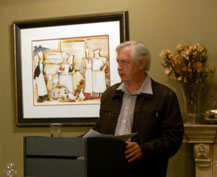Latest News Archive
Please select Category, Year, and then Month to display items
31 March 2021
|
Story Xolisa Mnukwa
![]()
The University of the Free State (UFS) Bloemfontein Campus conducted its first digital Campus Student Representative Council (CSCR) elections for the 2020/2021 SRC term. Elections for the 12 ex officio portfolios were conducted from 1 to 4 December 2020, while the elections for the 7 elective portfolios were conducted from 23 to 26 March 2021.
Of the 22 941
eligible voters for the elective portfolios, 8 044 cast their votes, which accounts for 35% of the voter’s roll. The 2021 voter turnout is an increase of 9,53% compared to the 2019 elections that were conducted manually. The CSRC incumbents mentioned below were officially inaugurated on 29 March 2021 and an official handover of the outgoing to the incoming incumbents was facilitated by the Student Governance Office.
The results below depict the final outcome of the CSRC elective portfolios. Elections were concluded at 21:00 on 26 March 2021. Watch video for the official inauguration.
| Position | Candidate | Votes |
| PRESIDENT | Jerry Thoka | 5 747 (74,6%) |
| Kamohelo Seleke | 1 960 (25.4%) |
| DEPUTY PRESIDENT | Loretta Mosito | 5 563 (72,4%) |
| Esona Yapi | 2 116 (27,6%) |
| SECRETARY | Ayanda Dlova | 5 988 (78,3%) |
| Simphiwe Zonke | 1 660 (21,7%) |
| TREASURER | Orefile Sefika | 5 425 (70,7%) |
| Thandiwe Kula | 2 246 (29,3%) |
| POLICY AND TRANSFORMATION | Vusumzi Gqalane | 4 988 (63,8%) |
| Thabo Duma | 1 649 (21,1%) |
| Nompumelelo Khoza | 1 178 (15,1%) |
| STUDENT DEVELOPMENT AND FIRST-GENERATION STUDENTS | Tshiamo Sebolai | 4 681 (60,4%) |
| Fhumulani Sididzha | 1 707 (22,0%) |
| Ofentse Ntsane | 1 365 (17,6%) |
| COMMUTER STUDENTS | Dimpho Mokhoantle | 4 469 (58,1%) |
| Marumo Rakwata | 1 643 (21,4%) |
| Lusanda Feleza | 1 582 (20,6%) |
The results below depict the outcome of the ex officio elections that took place from 1 to 4 December 2020:
| Position | Candidate |
|---|
| ASSOCIATIONS STUDENT COUNCIL | Michael Mnguni |
| STUDENT ORGANISATIONS COUNCIL | Tebogo Sako |
| ACADEMIC STUDENT COUNCIL | Katlego Booysen |
| DAY RESIDENCE COUNCIL | Sibongiseni Mncela |
| CAMPUS RESIDENCE COUNCIL | Mpho Maubane |
| POSTGRADUATE STUDENT COUNCIL | Nico Janse van Rensburg |
| INTERNATIONAL STUDENT COUNCIL | Rufaro Chakanyuka |
| STUDENT MEDIA AND DIALOGUE COUNCIL | Wandile Manqele |
| UNIVERSAL ACCESS AND SOCIAL JUSTICE COUNCIL | Katlego Sekele |
| CIVIC AND SOCIAL RESPONSIBILITY COUNCIL | Gert Terblanche |
| ARTS AND CULTURE COUNCIL | Katleho Khaola |
| SPORTS COUNCIL | Bongumusa Khumalo |
Afrikaans place names were not only given by Afrikaner people, says professor.
2012-09-25
 |
Prof. Peter Raper delivering his lecture on South African place names.
25 September 2012 |
Prof. Peter Raper, honorary professor at the Department of Linguistics and Language Practice, delivered a public lecture in Clarens earlier this month. The theme of the lecture was “From Stone Age to GPS: The fourth edition of the South African Place Names Dictionary”.
Prof. Raper shared the historical development of the project as well as the challenges and other interesting observations associated with the topic. He elaborated on the dramatic change in the focus of his research on place names in South Africa.
It was previously assumed that all of the Afrikaans place names were given by the Afrikaner people and that changing these place names was consistent with the mandate of the South African Geographical Names Council (SAGNC) to transform place names. Prof. Raper said more in-depth research revealed that a significant number of place names are actually translations of original San names – into Afrikaans, Khoi and the Bantu languages. He told the audience that given the constitutional stipulation that no cultural group’s heritage may be removed, this discovery calls into the question the modus operandi of the SAGNC.
Prof. Raper’s lecture was part of the conference programme of the Third International MIDP IV Symposium that took place on the Qwaqwa campus. The MIDP (Multilingual Information Development Programme) is a project sponsored by the Province of Antwerp. The theme for this year’s symposium was “Multilingualism for Empowerment” and was presented in collaboration with the University of Antwerp.